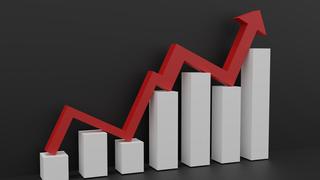Fresh political unrest in Hong Kong over Beijing's proposed national security laws in the city hit Asian share markets on Wednesday, even as optimism about the re-opening of the world economy supported a broader global stock rally.
Riot police in the Asian financial hub fired pepper pellets on protesters in the main business district, rekindling concerns about the disruptive protests seen last year that hit the territory's economy.
That capped regional stocks with MSCI's ex-Japan Asia-Pacific index losing 0.12 per cent, as Hong Kong and mainland China shares extended declines.
Hong Kong's Hang Seng lost 1.0 per cent, while mainland shares were down 0.5 per cent, amid fears the protests would worsen diplomatic and trade tensions between the US and China.
Elsewhere, however, investors were still buoyed by optimism about a post COVID-19 recovery.
European stocks are expected to rise with pan-European Euro Stoxx 50 futures up 0.3 per cent. German DAX futures rose 0.5 per cent, FTSE futures were up 0.5 per cent.
“Macro hedge funds are covering their short positions in developed markets' stocks as their bet on a second wave of the coronavirus and a double bottom in markets have not materialised,” said Masanari Takada, cross asset strategist at Nomura Securities.
E-Mini futures for the S&P 500 rose 0.7 per cent to edge near their 2-1/2-month high touched the previous day, as the index tackle a major chart point of its 200-day moving average.
The index had cleared 3,000 points in Wall Street overnight before pulling back, as some traders returned to the New York Stock Exchange floor for the first time in two months.
Japan's Nikkei rose 0.7 per cent to 2-1/2-month highs, while Australian shares hit a similar milestone before giving up most of gains.
The index of world's 49 stock markets stood near 2-1/2-month highs, having gained 2.7 per cent so far this month on hopes of economic recovery in the developed world, as countries ease social restrictions.
Economic data published on Tuesday showed US consumer confidence nudged up in May and new home sales beat expectations.
“We have seen a clear sign of rising expectations in economic recovery. Now we are beginning to see evidence of various stimulus supporting the economy,” said Toshifumi Umezawa, strategist at Pictet.
But the China focus remains a key weight for sentiment after US President Donald Trump on Tuesday said he was preparing to take action against China this week over its effort to impose national security laws on Hong Kong.
Worsening relations between the world's two biggest economies could further hobble global business activity, which is already under intense pressure due to the coronavirus pandemic.
The Chinese yuan also weakened to the lowest levels since early September in both onshore and offshore trade. The onshore renminbi slipped 0.3 per cent to as low as 7.1595 per dollar while the offshore unit fell 0.4 per cent to 7.1760 per dollar.
The yuan's fall also weighed on risk-sensitive currencies. The Australian dollar slipped 0.2 per cent to $0.6640.
The euro dipped 0.2 per cent to $1.0955, while the yen barely moved at 107.52 per dollar.
US Treasury yields retreated from lows, with ten-year yields at 0.692 per cent, having risen about 4 basis points on Tuesday.
Gold prices dipped slightly to $1,707.5 per ounce, slipping further from 7 1/2-year high of $1,764.8 touched last week.
Oil prices slipped slightly on concerns about US-China tensions with US West Texas Intermediate crude futures down 0.6 per cent at $34.14 per barrel.







Comments
Comments have to be in English, and in full sentences. They cannot be abusive or personal. Please abide by our community guidelines for posting your comments.
We have migrated to a new commenting platform. If you are already a registered user of TheHindu Businessline and logged in, you may continue to engage with our articles. If you do not have an account please register and login to post comments. Users can access their older comments by logging into their accounts on Vuukle.